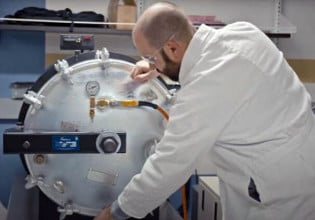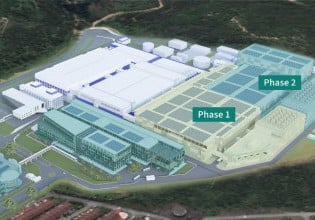European researchers at the the University of Oxford in England have reported progress on a fuel cell that generates electricity through a living enzyme rather than a synthetic material, raising the potential for smaller and cheaper power supplies. The discovery involves the use of enzymes known as hydrogenases, which exist in microscopic life forms. The hydrogenases have a natural ability to make electrical power from hydrogen even in the presence of oxygen, which allows the creation of a fuel cell in which the hydrogen and oxygen are together in a single container, without a synthetic membrane to guide the reaction.
The discovery represents a proof of concept that you can run a hydrogen-oxygen fuel cell without a membrane. A fuel cell generates power by combining hydrogen and oxygen to produce energy and water. The efficiency and lack of polluting emissions from fuel cells have companies and researchers examining a variety of applications, including power for batteries, automobiles, and office buildings.






